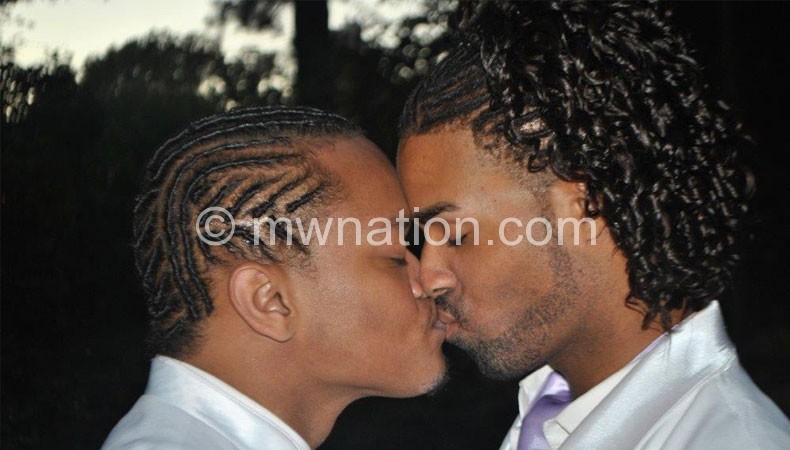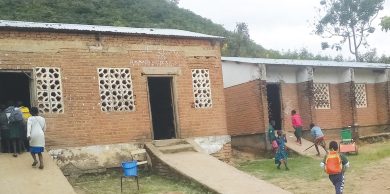Changing police perception towards homosexuality
Homosexuality is still a contentious issue in Malawi. This is because many people, including traditional leaders, vehemently object to it. Some even refuse to discuss it.
The situation is being compounded by the fact that the country’s laws regard homosexuality as a crime. The Penal Code regards homosexuality as illegal according to Sections 153, 156 and 137.

This is making the job for Centre of the Development of the People (Cedep), Centre for Human Rights and Rehabilitation (CHRR) and Malawi Law Society (MLS), institutions that are fighting for the rights of homosexuals, difficult.
In the week that the world observed United Nations (UN) Human Rights Day, which falls on December 10, the three organisations invited the Malawi Police Services (MPS) to training in Liwonde in Machinga on the rights of Lesbians, Gays, Bisexuals, Transgender and Intersexual (LGBTI).
Deputy Inspector General of Police responsible for operations Rodney Jose, who opened the training, admitted that it (training for the police) was important to remove the dilemma that comes with homosexuals.
“We are in a dilemma because, on one hand, we have to follow the Bill of Rights which prohibits discrimination of any form while on the other hand, Sections 137, 153 and 156 of the penal code criminalise consensual sexual activity between individuals of the same sex, whose penalties are up to 14 years,” said Jose.
But associate professor of law at Chancellor College Mwiza Nkhata did not see any dilemma as police are obliged to follow the Constitution which is the supreme law of the land.
Nkhata told the police officers that the Constitution, under which the MPS was established (Section 152) and supported by the Police Act of 2010, is supreme and that any law that is inconsistent with it is null and void.
He admitted that same sex relationships are illegal in Malawi, but that they are protected by the supreme law of the land, the Constitution.
“Section 19 says the dignity of every person is inviolable, therefore, judicial or other proceedings must respect or guarantee dignity of every human being. Section 21 guarantees every person’s right to privacy and prohibits any form of discrimination,” said Nkhata.
As a way of balancing the laws of Malawi and international obligation, Associate Professor Nkhata suggested what he called the Human Rights Based Policing (HRBP), which police have to follow.
“HRBP is a comprehensive, systematic and institutional compliance with international human rights standards and practices in the conduct of police and law enforcement duties.
It defines the relationship between individual citizens and various groups and sectors of society as claim holders whose rights must be respected and protected by the police and the police, as duty bearers, must respect, protect and fulfil human rights,” he said.
There have been negative reactions to same sex relationships, with traditional leaders and the faith community topping the list.
However Malawi Network of Religious Leaders Living with or personally affected by HIV and Aids (Manerela+) feel that a fatherly approach to gays is needed if harmony is to be restored in society.
Manerela+’s Bruce Tushabe condemned religious leaders who deliberately distort facts about gays in order to win folks.
Tushabe reminded the police officers that the Bible warns against judging people.
Others that spoke were psychologist associate professor Chiwoza Bandawe and human rights lawyer Chrispine Sibande.
Probably the climax of the training was when two gays shared their experiences, especially when they were harassed by some of their friends and even the police.
It was then that the officers started to believe that homosexuality is not copied, but inborn.
“Honestly, all along I have believed that homosexuality is a culture copied from abroad. But with these testimonies, I understand that it is inborn.
This will help me how I will be handling such issues back to my station,” confessed one police officer-in-charge.
Cedep executive director Gift Trapence hoped that more trainings for police officers will be carried out in many places across the country.
“These [police officers] are people that enforce the law and their understanding of homosexuality will help them carry out their duties without discrimination.
This is the reason we intend to travel to the Centre and then the North to train more officers,” said Trapence.
He, however ,expressed disappointment that gays continue to receive a lot of harassment including torture, beatings and even denied access to medication. n





